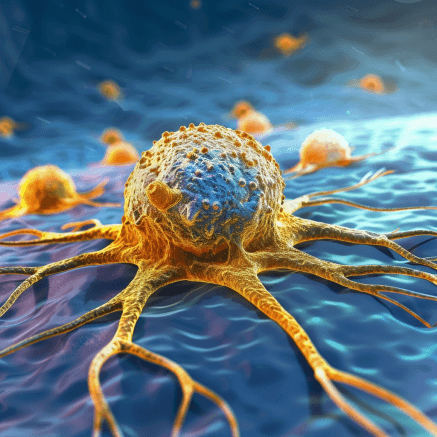
Breast Cancer Treatment Options in the UAE
17 Jul, 2024
 Healthtrip Team
Healthtrip TeamBreast cancer is a major health concern for women worldwide, and it's a significant issue in the UAE too. Fortunately, the UAE has made big strides in medical technology and healthcare, offering a variety of treatments customized for each patient. Let's dive into what treatment options are available, which hospitals lead the charge, and why catching it early is so important. When we talk about breast cancer, we're referring to abnormal cells in breast tissue that start growing and dividing uncontrollably. It can affect anyone, but it's most commonly found in women. There are different types, like ductal carcinoma in situ (DCIS), invasive ductal carcinoma (IDC), and invasive lobular carcinoma (ILC). Detecting it early through regular screenings is key to successful treatment.
Most popular procedures in India
Diagnostic Procedures for Detecting Breast Cancer
In the UAE, leading hospitals are equipped with state-of-the-art diagnostic tools designed to detect breast cancer early, when treatment is most effective. These diagnostic procedures include:
Wellness Treatments
Give yourself the time to relax
Lowest Prices Guaranteed!

Lowest Prices Guaranteed!
1. Mammography: Mammography uses low-dose X-rays to create detailed pictures of breast tissue, making it the top choice for screening women over 40. It spots things like masses or microcalcifications that could signal cancer or precancerous changes.
2. Ultrasound: Breast ultrasound uses high-frequency sound waves to create images of breast tissue. It's often used with mammography, especially for younger women or those with dense breasts. Ultrasound gives more details about suspicious areas seen on mammograms, helping to distinguish between solid masses and fluid-filled cysts.
3. MRI (Magnetic Resonance Imaging): Breast MRI creates highly detailed images using powerful magnets and radio waves. It's great for assessing high-risk patients, like those with a strong family history of breast cancer or specific genetic mutations (like BRCA1/2). MRI can find small tumours that might not show up on mammograms or ultrasounds, and it's used to investigate abnormalities found on other scans.
These diagnostic tools help doctors pinpoint breast cancer accurately, figure out how far it has spread, and create treatment plans customized to each patient's needs. Finding cancer early with these methods really increases the chances of successful treatment and lowers the need for harsher treatments. Women in the UAE can count on regular mammograms, plus ultrasound and MRI when needed, to catch breast cancer early. It's all about using advanced healthcare tech to keep them healthy and well.
1. Surgery for Breast Cancer
Surgery is a crucial part of treating breast cancer in the UAE. It involves removing cancerous tissue from the breast and is often tailored to the specific characteristics of the tumour and the patient's overall health. There are two main types of surgical procedures used:
1. Lumpectomy: A lumpectomy, also called breast-conserving surgery, removes the cancerous tumour along with a small amount of surrounding healthy tissue. This helps keep most of the breast intact while treating the cancer effectively. It's usually advised for early-stage cancers that are small and haven't spread.
2. Mastectomy: A mastectomy involves removing the entire breast that is affected by cancer. There are different types of mastectomies, including:
- Total Mastectomy: Removal of the entire breast tissue, but not the lymph nodes.
- Modified Radical Mastectomy: Removal of the entire breast tissue along with some of the lymph nodes under the arm (axillary lymph nodes).
- Radical Mastectomy: Rarely performed now, involves removal of the entire breast, underlying chest muscles, and all of the axillary lymph nodes.
The decision between lumpectomy and mastectomy depends on factors like tumour size, location, cancer spread, patient preferences, and cosmetic concerns. New surgical techniques, like oncoplastic surgery, aim to preserve the breast's natural appearance after mastectomy, when feasible.
After surgery, patients go through a recovery period, which may involve temporary restrictions on physical activities and using pain relief as needed. Regular follow-up visits with healthcare providers are crucial for monitoring healing, checking for any signs of cancer returning, and discussing further treatment options if necessary.
Surgery is a critical part of breast cancer treatment, often combined with radiation therapy, chemotherapy, hormone therapy, or targeted therapy to achieve the best outcomes for patients in the UAE.
2. Radiation Therapy for Breast Cancer
Radiation therapy is crucial in treating breast cancer in the UAE. It uses high-energy rays like X-rays or protons to target and kill cancer cells. This therapy, often given after surgery as adjuvant treatment, aims to eliminate any leftover cancer cells in the breast area and lower the chances of cancer coming back. Even after a lumpectomy or mastectomy, small numbers of cancer cells might remain in the breast or nearby lymph nodes. Radiation therapy precisely targets these remaining cells. By delivering focused radiation doses to the affected area, oncologists aim to destroy any microscopic cancer cells that surgery might have missed.
Types of Radiation Therapy:
1. External Beam Radiation: This is the most common type of radiation therapy for breast cancer. It involves directing high-energy beams from a machine outside the body toward the specific area of the breast where cancer is present. Treatment sessions are typically scheduled over several weeks to deliver the prescribed dose of radiation gradually.
2. Internal Radiation (Brachytherapy): In some cases, internal radiation therapy may be used, particularly for certain types of breast cancer. This involves placing radioactive sources directly into the breast tissue near the tumour site for a short period. This method allows for a more targeted delivery of radiation to the affected area.
Radiation therapy offers several benefits, including:
- Reduced Risk of Recurrence: By targeting residual cancer cells, radiation therapy significantly reduces the chances of breast cancer returning.
- Preservation of Breast Function: For patients undergoing lumpectomy, radiation therapy helps preserve the breast's appearance and function by eliminating cancer cells while sparing healthy tissue.
However, radiation therapy can lead to temporary side effects such as fatigue, skin irritation, and mild discomfort in the treated area. Healthcare providers closely monitor and manage these effects to ensure patients remain comfortable and well-supported throughout their treatment. Radiation therapy is often part of a combined treatment approach that may include chemotherapy, hormone therapy, or targeted therapy, tailored to the specific characteristics of the cancer and the patient's overall health. This multidisciplinary strategy ensures comprehensive care and the best possible outcomes for breast cancer patients in the UAE.
In the UAE, radiation therapy is pivotal in the holistic treatment of breast cancer, contributing to improved survival rates and better quality of life for patients. Ongoing advancements in technology and treatment methods further refine radiation therapy, providing personalized care that addresses each patient's unique treatment needs.
3. Chemotherapy for Breast Cancer
Chemotherapy is a potent treatment method used to combat breast cancer by targeting and destroying cancer cells or preventing their growth. It plays a crucial role in both reducing tumour size before surgery (neoadjuvant therapy) and eliminating any remaining cancer cells after surgery (adjuvant therapy) to lower the risk of recurrence.
Chemotherapy drugs work by interfering with the ability of cancer cells to divide and grow. These drugs are administered either orally or intravenously, allowing them to travel throughout the body to target cancer cells wherever they may be present.
a. Neoadjuvant Chemotherapy: When used before surgery, neoadjuvant chemotherapy aims to shrink the size of the tumour. This approach can make the surgical removal of the tumour more feasible and may allow for breast-conserving surgery (lumpectomy) rather than a full mastectomy. It also helps to assess how well the cancer responds to treatment before proceeding with surgery.
b. Adjuvant Chemotherapy: After surgery, adjuvant chemotherapy is administered to eliminate any remaining cancer cells that may not have been removed during surgery. This reduces the risk of cancer recurrence and improves long-term outcomes for patients.
Types of Chemotherapy Drugs:
There are various types of chemotherapy drugs used in the treatment of breast cancer, including:
- Taxanes (such as Paclitaxel and Docetaxel): These drugs interfere with cell division and growth.
- Anthracyclines (such as Doxorubicin and Epirubicin): These drugs work by damaging the DNA inside cancer cells.
- Platinum-based drugs (such as Carboplatin): These drugs disrupt the cancer cell's ability to repair DNA damage.
The choice of chemotherapy regimen is based on factors like the specific type of breast cancer, its stage, and the patient's overall health. Treatment plans are personalized to maximize effectiveness while minimizing side effects.
Chemotherapy can lead to temporary side effects such as hair loss, nausea, fatigue, and increased susceptibility to infections. However, these effects are usually temporary and can be managed with medications and supportive care from healthcare teams. Chemotherapy may be combined with other treatments like surgery, radiation therapy, hormone therapy, or targeted therapy, depending on the patient's individual treatment plan. This multidisciplinary approach ensures comprehensive care tailored to each patient's needs.
In the UAE, chemotherapy remains a cornerstone of breast cancer treatment, crucial for reducing tumour size, eliminating residual cancer cells, and improving overall outcomes for patients. Ongoing research and advancements in chemotherapy continually refine treatment protocols, offering new hope and options for breast cancer patients.
4. Hormone Therapy for Breast Cancer
Hormone therapy is a targeted treatment approach used specifically for breast cancers that are hormone receptor-positive. This means that the cancer cells have receptors (proteins) that attach to hormones like estrogen or progesterone, stimulating their growth.
Hormone therapy works by either blocking the hormones from attaching to the cancer cells or reducing the body's production of these hormones. By depriving hormone receptor-positive breast cancers of the hormones they need to grow, hormone therapy helps slow down or stop cancer growth.
Types of Hormone Therapy:
1. Selective Estrogen Receptor Modulators (SERMs): Drugs such as Tamoxifen work by blocking estrogen receptors on breast cancer cells, preventing estrogen from binding and stimulating cancer cell growth.
2. Aromatase Inhibitors: These drugs, including Anastrozole, Letrozole, and Exemestane, lower the levels of estrogen in postmenopausal women by blocking an enzyme (aromatase) responsible for producing estrogen in the body.
3. Ovarian Suppression: In premenopausal women, ovarian suppression can be achieved through medications or surgical procedures to reduce the production of estrogen by the ovaries.
When Hormone Therapy is Used:
- Adjuvant Therapy: After surgery and possibly radiation therapy, hormone therapy is used to reduce the risk of cancer recurrence.
- Neoadjuvant Therapy: Before surgery, hormone therapy may be used to shrink the tumour and make it easier to remove.
However, hormone therapy can lead to side effects like hot flashes, joint pain, and an increased risk of osteoporosis. It's crucial for healthcare providers to regularly monitor and manage these side effects to ensure patient comfort and well-being. Hormone therapy is often combined with other treatments such as surgery, radiation therapy, chemotherapy, or targeted therapy, depending on the specific characteristics of the cancer and the patient's overall health. This multidisciplinary approach ensures comprehensive care and the best possible treatment outcomes.
In the UAE, hormone therapy is essential in treating hormone receptor-positive breast cancer, providing targeted and effective treatment options that enhance survival rates and quality of life for patients. Ongoing research continues to refine hormone therapy approaches, offering new hope and advanced treatment options for breast cancer patients.
5. Targeted Therapy for Breast Cancer
Targeted therapy is a specialized treatment approach designed for specific types of breast cancer, like HER2-positive breast cancers. These cancers have an excess of a protein called Human Epidermal Growth Factor Receptor 2 (HER2), which spurs cancer cell growth.
This therapy works by targeting and disrupting the molecules or pathways that cancer cells depend on to grow and spread. Unlike chemotherapy, which impacts all rapidly dividing cells, targeted therapy focuses on blocking the signals that fuel cancer cell growth while minimizing harm to healthy cells.
Types of Targeted Therapy:
1. HER2-Targeted Therapy: Drugs such as Trastuzumab (Herceptin), Pertuzumab (Perjeta), and T-DM1 (Kadcyla) specifically target HER2-positive breast cancers. These drugs may be used alone or in combination with chemotherapy to effectively block the HER2 protein and inhibit cancer cell growth.
2. CDK4/6 Inhibitors: Drugs like Palbociclib, Ribociclib, and Abemaciclib target proteins involved in cell division (CDK4 and CDK6) and are used in hormone receptor-positive, HER2-negative breast cancers to enhance the effectiveness of hormone therapy.
Benefits of Targeted Therapy:
- Precision Treatment: Targeted therapy specifically targets cancer cells, reducing damage to healthy tissues and minimizing side effects compared to traditional chemotherapy.
- Improved Outcomes: It can improve treatment responses and survival rates, particularly in cancers that are driven by specific genetic mutations or overexpressed proteins like HER2.
While targeted therapy is generally well-tolerated, it can still lead to side effects such as nausea, fatigue, and skin reactions. These side effects are typically milder compared to those of chemotherapy and are managed through careful monitoring and supportive care. Targeted therapy is often combined with other treatments like surgery, radiation therapy, chemotherapy, or hormone therapy, depending on the specific characteristics of the cancer and the patient's overall health. This comprehensive approach ensures that patients receive the most effective and personalized care.
In the UAE, targeted therapy represents a significant advancement in breast cancer treatment, providing tailored and effective options for HER2-positive and other specific breast cancer types. Ongoing research continues to explore new targeted therapies and combinations, offering hope for improved outcomes and quality of life for breast cancer patients.
6. Immunotherapy for Breast Cancer
Immunotherapy is an innovative treatment approach that utilizes the body's immune system to recognize and combat cancer cells. While not as commonly used for breast cancer as some other types of cancer, immunotherapy is showing promising results in specific cases, particularly in clinical trials.
Immunotherapy works by enhancing the body's natural defences against cancer cells. It involves stimulating the immune system to recognize and attack cancer cells more effectively. This is achieved through various strategies, such as:
- Checkpoint Inhibitors: These drugs release the brakes on the immune system, allowing it to recognize and attack cancer cells more vigorously.
- Monoclonal Antibodies: Antibodies are designed to target specific proteins in cancer cells, marking them for destruction by the immune system.
- Cancer Vaccines: These vaccines stimulate the immune system to recognize and target cancer cells based on specific antigens present in the tumour.
Immunotherapy is primarily utilized for breast cancers that are triple-negative or exhibit high levels of tumor-infiltrating lymphocytes (TILs), indicating a robust immune response. It may also be employed in HER2-positive breast cancers alongside other therapies.
Immunotherapy can be administered alone or combined with treatments like chemotherapy, targeted therapy, or radiation therapy, depending on the specific characteristics of the cancer and the patient's overall health. This multidisciplinary approach ensures comprehensive care and the best treatment outcomes.
In the UAE, immunotherapy represents an exciting frontier in breast cancer treatment, offering new hope and expanded treatment options for patients. Ongoing research and clinical trials are continually exploring the potential of immunotherapy to enhance survival rates and improve the quality of life for breast cancer patients.
Supportive Care and Rehabilitation for Breast Cancer Patients
In the UAE, comprehensive care for breast cancer extends beyond medical treatments to include a range of supportive therapies aimed at managing side effects and improving quality of life throughout the treatment journey. These supportive services may include:
1. Pain Management: Breast cancer treatments such as surgery, radiation therapy, and chemotherapy can sometimes cause pain. Pain management techniques, including medications and non-pharmacological approaches such as acupuncture or physical therapy, are employed to alleviate discomfort and improve overall well-being.
2. Nutritional Support: Diet plays a crucial role in supporting immune function and overall health during breast cancer treatment. Registered dietitians work closely with patients to develop personalized nutrition plans that meet their specific dietary needs and help optimize recovery. This includes guidance on maintaining a balanced diet to manage treatment-related side effects like fatigue or changes in appetite.
3. Psychosocial Support: Coping with breast cancer involves addressing emotional and psychological challenges. Psychosocial support services, such as individual counselling, support groups, and mindfulness-based therapies, are available to help patients navigate the emotional impact of their diagnosis, manage stress, and enhance coping strategies. These resources provide a supportive environment where patients can share experiences and receive guidance from trained professionals.
4. Rehabilitation Services: Physical rehabilitation is essential for restoring strength, flexibility, and mobility after breast cancer treatments. Rehabilitation programs, tailored to individual needs, may include physical therapy exercises, lymphedema management (if applicable), and recommendations for gradually increasing activity levels. These services aim to enhance physical function, reduce treatment-related side effects, and support overall recovery.
5. Survivorship Programs: As patients transition from active treatment to survivorship, survivorship programs offer ongoing monitoring, follow-up care, and resources to promote long-term health and well-being. These programs focus on monitoring for cancer recurrence, managing long-term side effects of treatment, and promoting healthy lifestyle behaviours.
Leading Hospitals for Breast Cancer Treatment
- American Hospital Dubai: Renowned for advanced oncology services and personalized treatment plans.
- Mediclinic City Hospital Dubai: Offers specialized oncology departments with advanced diagnostic and treatment options.
- NMC Royal Hospital Abu Dhabi: Equipped with comprehensive oncology units and holistic patient care services.
- Burjeel Hospital Abu Dhabi: Center of excellence in oncology with innovative treatments and personalized patient support.
Breast cancer treatment in the UAE is characterized by advanced medical technology, skilled healthcare professionals, and a commitment to comprehensive care. By understanding the available treatment options and seeking specialized care, patients can navigate their breast cancer journey with confidence and hope for a positive outcome.
Related Blogs
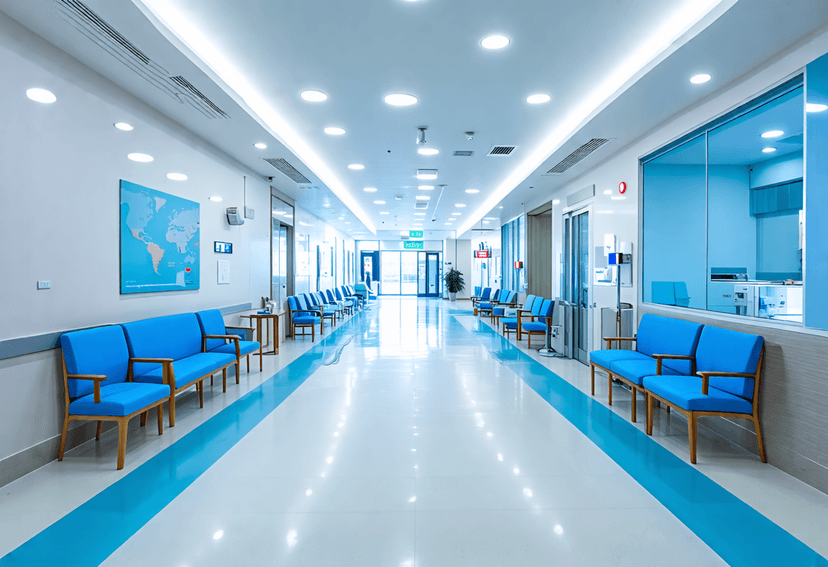
Unparalleled Medical Care at Burjeel Medical City, Abu Dhabi
Experience the best of medical care and hospitality at Burjeel
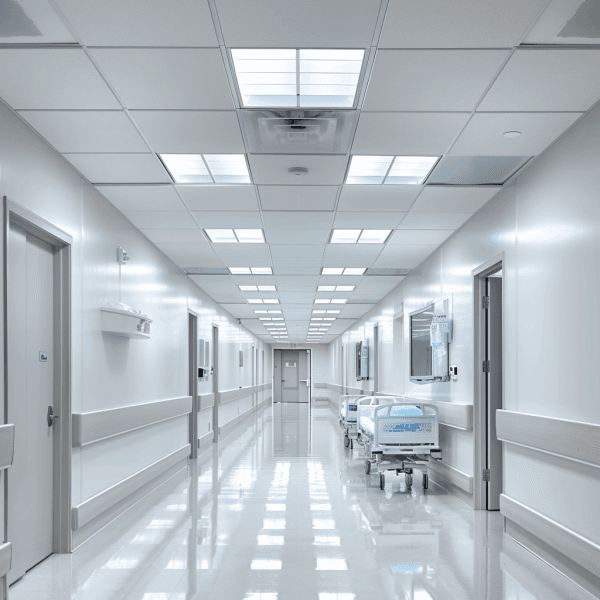
Top Hospitals for Bone Marrow Transplant in UAE
When facing the challenging journey of a bone marrow transplant,

Top Hospitals for Hormone Therapy in Cancer Treatment in UAE
Hormone therapy has become a cornerstone in the treatment of
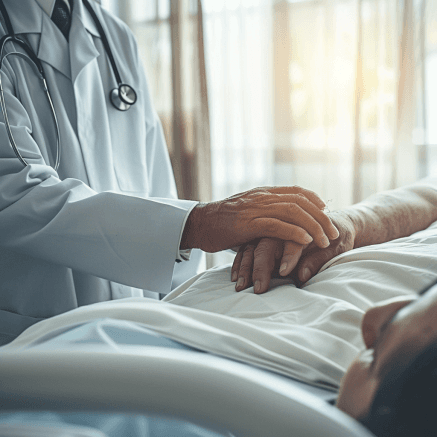
Dubai’s Top Eye Care Hospitals
Let’s face it—life in Dubai moves fast, and eye health

Top Dubai Hospitals for Cancer Care
Facing a cancer diagnosis is tough enough without the added
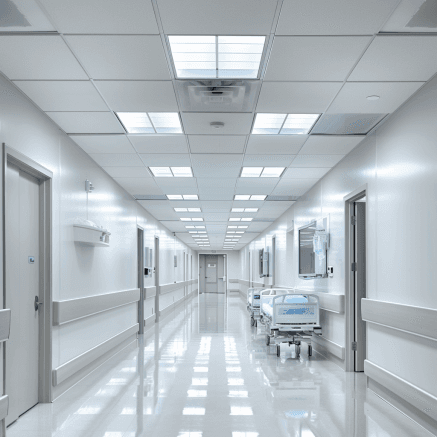
Dubai’s Leading Orthopedic Hospitals
Whether you’re dealing with a sports injury or need a










